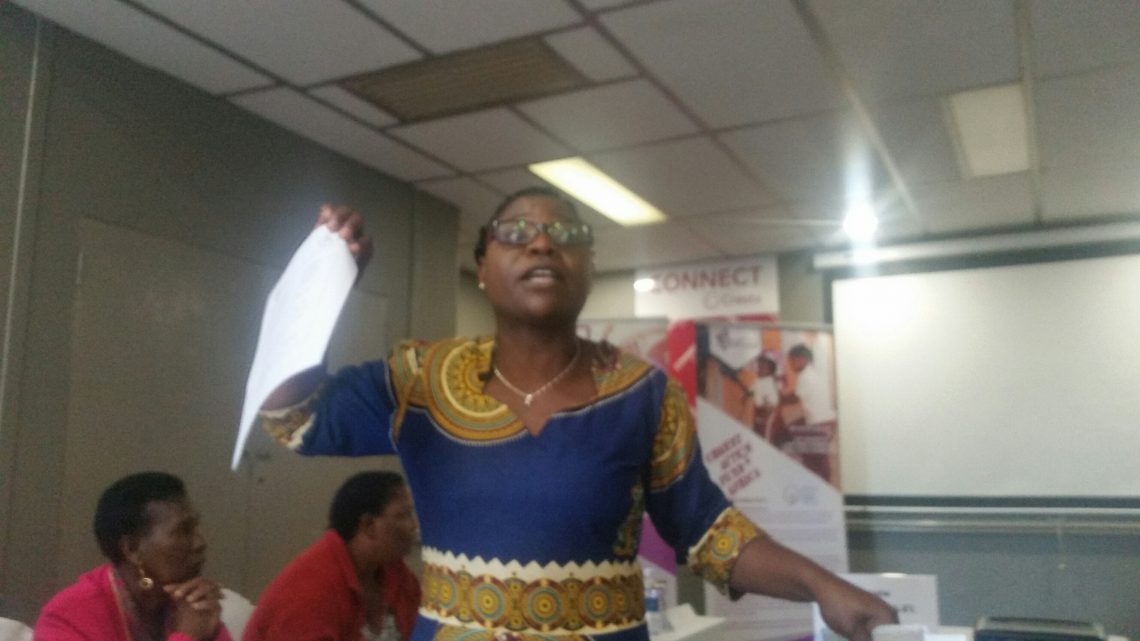By Byron Mutingwende
Deaf Women Included, an organisation that works to amplify the voices of deaf women in Zimbabwe has called for the domestication process of the Convention on the Rights of Persons with Disabilities (UNCRPD) in Zimbabwe.
In 2013, Zimbabwe signed and ratified the UNCRPD committing to the respect, protection and uplifting of the rights of persons with disabilities in Zimbabwe. Despite the importance of the CRPD in the lives of persons with disabilities, it remains undomesticated.
Speaking at a consultative meeting in Harare on 31 May 2018, Agnes Chindimba, the Director of Deaf Women Included said the UNCRPD had not been domesticated despite section 34 of the Constitution of Zimbabwe Amendment (No.20) of 2013 that obliges the State to ensure that all international conventions, treaties and agreements to which Zimbabwe is a party are incorporated into domestic law.
“The Disabled Persons Organisations (DPOs) we have been advocating for the implementation of the UNCRPD. The domestication of the UNCRPD will offer us positive conditions and criteria of good practice in achieving meaningful participation of women with disabilities. It also offers us positive change in our lives and empowers us to become active rights holders by opening the space for us to be definers of our own destinies,” Chindimba said.
Chindimba said the domestication of the UNCRPD has many positive implications and benefits for women with disabilities.
“The convention, when fully implemented, will change traditionally dominant negative attitudes towards women and general exclusion from participation in politics. It will conceptualise disability as a human rights issue in the wider spectrum of society. The good thing is that persons with disabilities who are willing to make their voices heard initiated the convention.”
The convention will also improve women with disabilities and other marginalised communities’ access to justice. As it stands, such women and girls face unique barriers that hinder their access redress like reporting cases of sexual abuse and violation because of communication challenges, particularly for the deaf.
Interacting with the police is difficult for women and girls with disabilities who may require special accommodation depending on their disabilities that are procedural and age appropriate. This may include access to sign language interpretation, the presence of someone to facilitate communication, the use of simple language and the options to file reports in Braille.
Most of them face problems in accessing medical care. In cases of sexual violation, it is important to get immediate medical attention and facilitate timely evidence collection. The failure by many medical professionals to adequately explain medical tests and procedures and ensure that PWDs are comfortable with the process may add to the trauma of sexual violence.
Abraham Matenda a disability activist and human rights lawyer urged PWDs to read and understand the UNCRPD and called on the government to domesticate the convention as a matter of urgency.
“The UNCRPD is an important international human rights law instrument. Unlike other instruments before it that only provided for formal equality this document goes further to provide substantive equality that is premised on the diverse needs of people of different abilities in society.
“The UNCRPD is premised on the ‘nothing for us without us principle.’ It thus becomes a living document that should not be confined to the offices of government officials or lawyers. As PWDs, we need meaningful involvement and participation in all the processes and facets of life. This convention challenges stakeholders to ensure PWDs’ meaningful participation in democratic processes,” Matenda said.
He added that barriers, which may hinder PWDs participation on an equal level with the able-bodied, largely fuel disability. In that regard there is urgent need to domesticate the UNCRPD since it raises the concepts of universal design and reasonable accommodation.
If a building is universally designed, it makes it useable by many people of different abilities since it will have ramps and so forth. Reasonable accommodation would entail addition of the necessary modification that would not impose an extra burden on an individual.
Globally, approximately one in 10 people has a psychological, physical or sensory barrier which limits their lives and prevents them from exercising their full political, economic, social and cultural rights.
The denial of basic rights to persons with disabilities does not only affect them and their families but also the economic and social development of entire societies.






